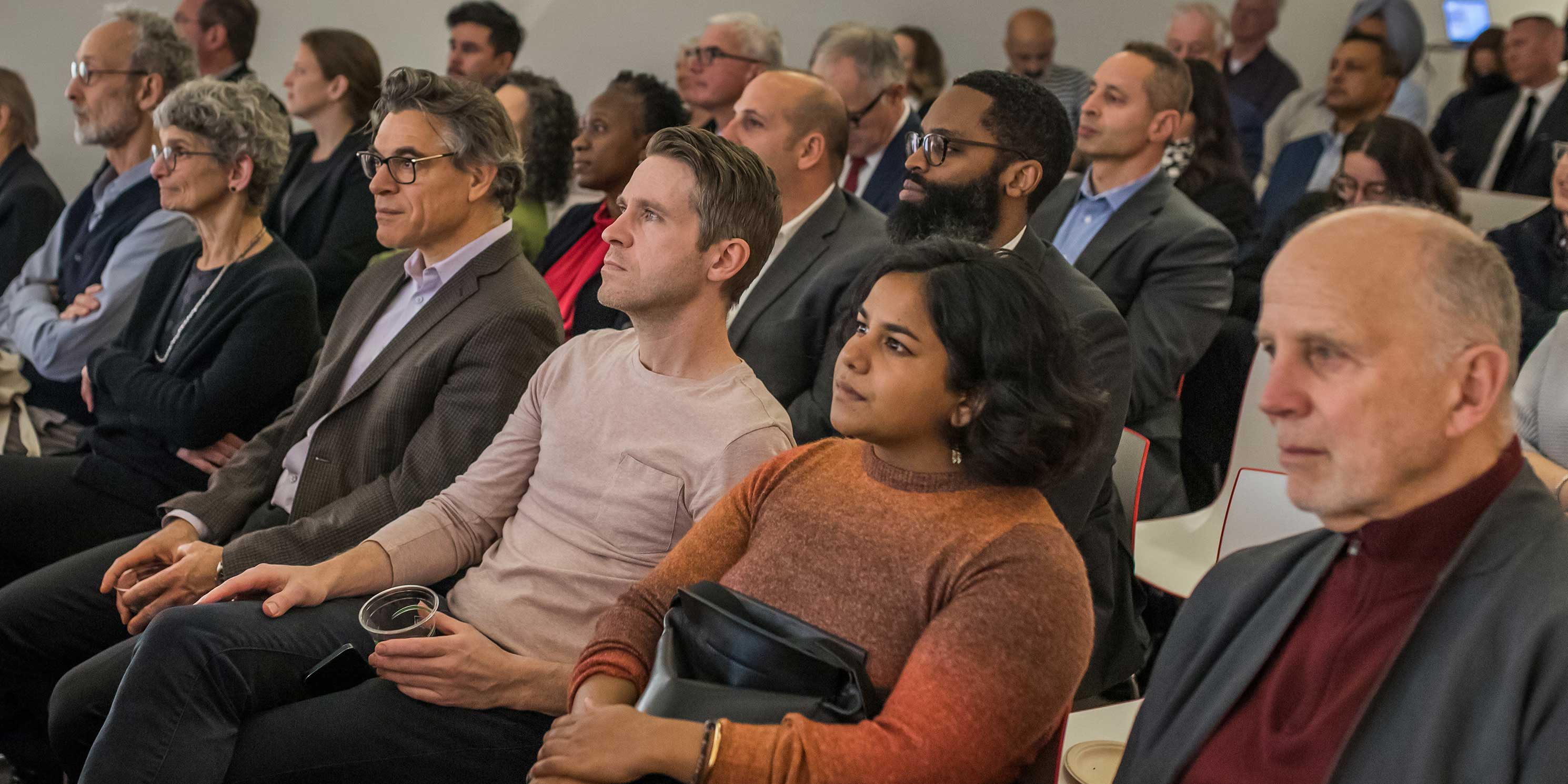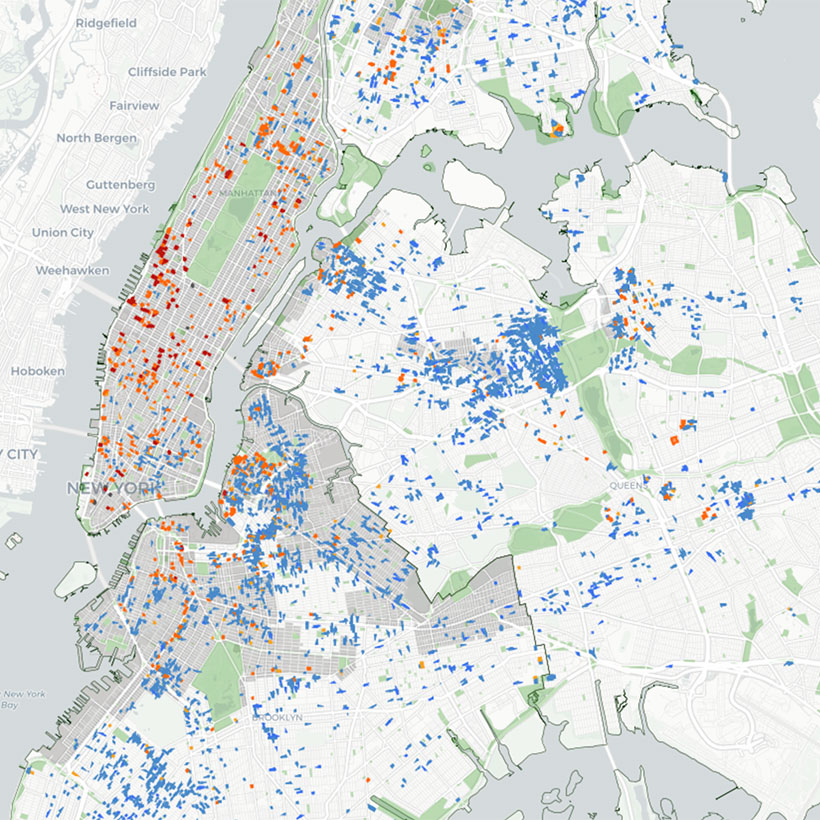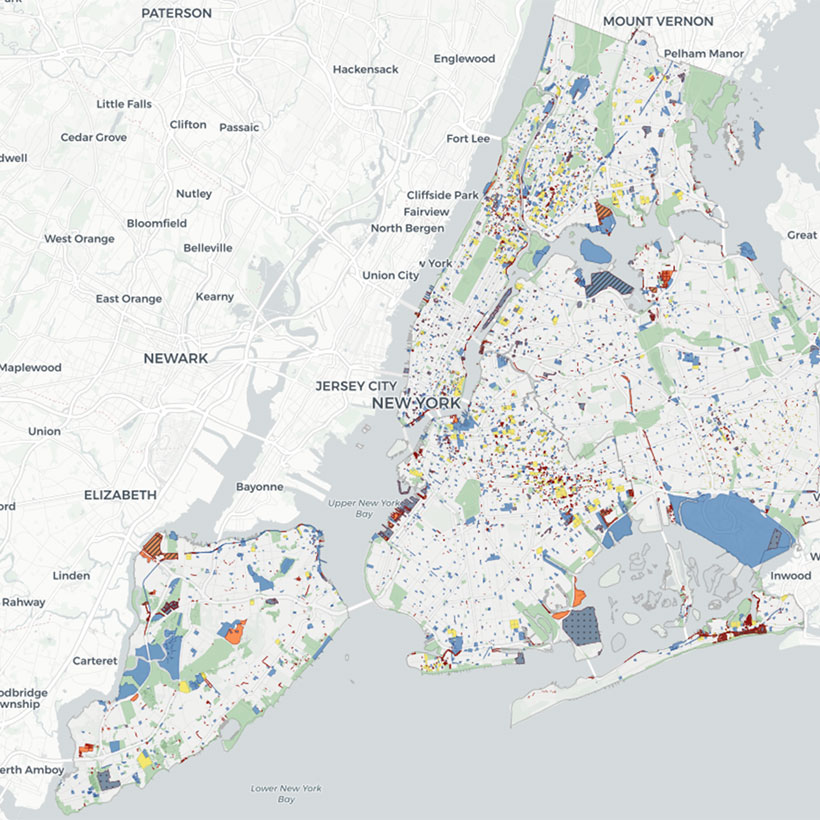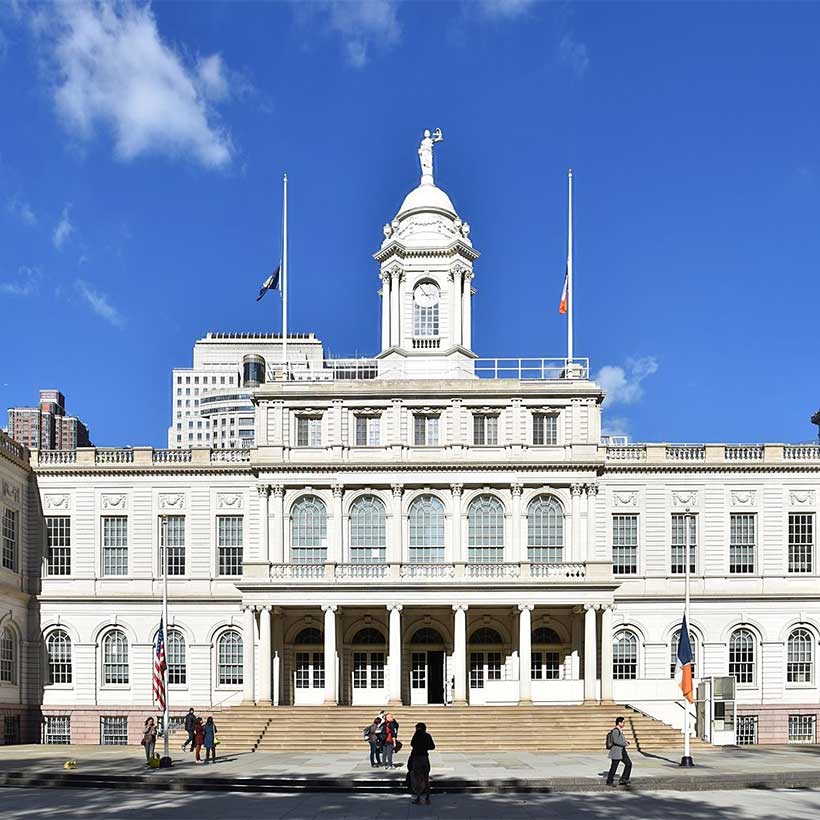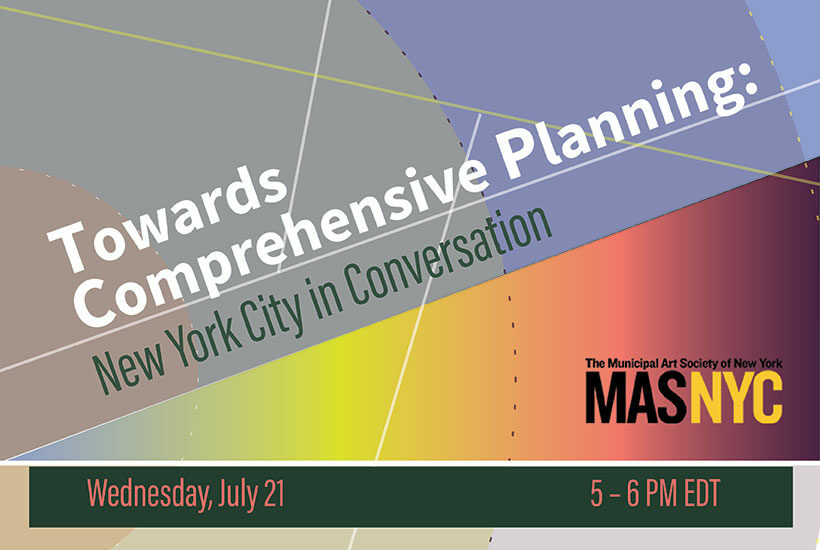City Charter Revision Must Address Comprehensive Planning
Testimony to the City Council Charter Revision Committee
The Municipal Art Society of New York (MAS) has been providing input on the City’s Charter revisions since our founding in 1893. With this unique historical perspective, we have observed an increasing number of neighborhoods experiencing long-term, negative impacts of unsound and inequitable land use policy. Many New Yorkers believe that they do not have a true voice in decisions regarding the allocation of funds, changes to zoning regulations, and overall development in their neighborhoods.
As we engage in the first major Charter overhaul since 1989, we see an incredible opportunity to effect meaningful changes to remedy these issues. MAS is encouraged that many of these reforms have been identified in the Preliminary Staff Report as potential Charter revisions under consideration by the Commission.
MAS provides the following comments and recommendations regarding the positions taken in the Preliminary Staff Report that we urge the Commission to consider.
Download Testimony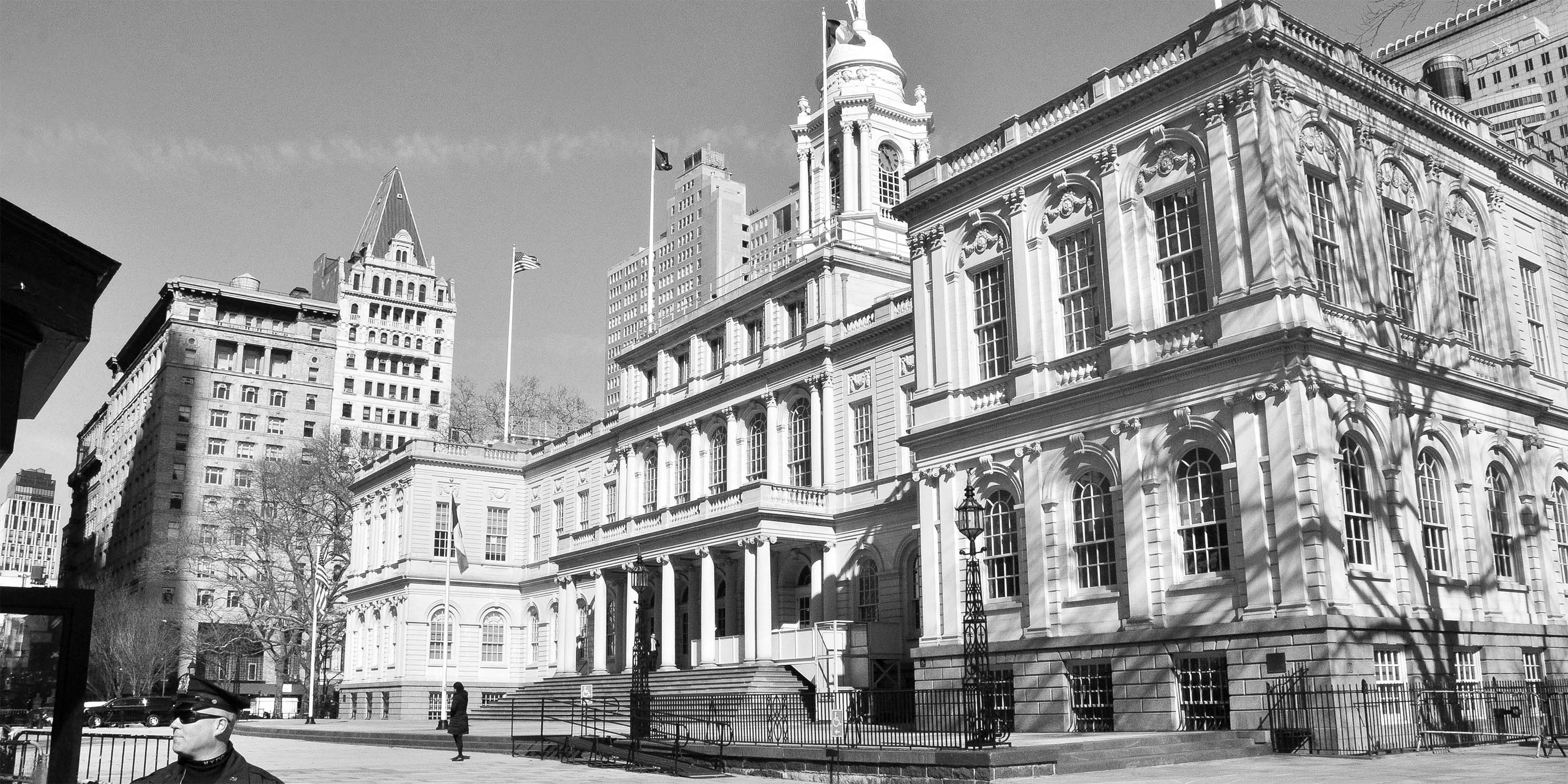
Public Advocate
We believe that the Commission should expand the power of the Public Advocate beyond the role defined in the Charter today. The Public Advocate should be obligated to annually review policies covered under the City’s Fair Share criteria and examine citywide planning concerns such as public school capacity, inclusionary housing, the siting of public facilities such as homeless shelters and jails, major infrastructure investments, and actions that could result in residential and commercial displacement.
MAS also supports providing the Public Advocate with subpoena power, elevating the office to the same level of oversight as the Comptroller who currently has the power to check and balance the Mayor on fiscal issues. The Public Advocate should have similar powers for service issues, as envisioned by the 1989 Charter Commission. MAS firmly believes that incorporating the voice of the Public Advocate, as a citywide elected position, into these processes by way of subpoena power will allow the Public Advocate to better serve as an ombudsperson for all New Yorkers.
Borough Presidents
As a planning and preservation advocacy organization, we value the role that Borough Presidents play in land use and policy decisions. MAS therefore recommends that the Commission amend the Charter to require that agencies provide Borough Presidents’ offices with documents and records relating to matters in their jurisdiction. This is especially important for projects subject to ULURP where Borough Presidents’ input, though currently advisory, often carries significant weight in decisions made by the Department of City Planning and the City Council.
Land Use
MAS has long believed a pre-certification process is needed to bring about meaningful public discourse in the ULURP process. All too often by the time a project has been certified, there is the sense that it is a veritable “done deal,” and that meaningful public input is not considered. Therefore, we strongly recommend that the Commission establish a pre-certification engagement process to provide more time and an earlier opportunity for Community Boards and Borough Presidents to weigh in on land use applications subject to ULURP. We recommend a minimum 60-day process, which must include a public meeting to be hosted by the affected Community Board and Borough President. Along with improving the ULURP process, we would be remiss if we did not mention that we strongly advocate for strengthening the City Environmental Quality Review process as well, especially mitigation requirements for projects that result in significant adverse environmental impacts.
Planning
Planning, comprehensive or otherwise, has proven to be one of the more challenging issues considered under Charter revisions. From 1936 until 1975, the City Charter required a master plan. The requirement was repealed because no master plan had ever been fully implemented. Subsequently, it was replaced by a nebulous provision for “plans for the development, growth, and improvement of the city and of its boroughs and community districts.” In addition, the Preliminary Staff Report identifies no fewer than 12 plans it considers part of a “strategic” or “comprehensive” plan for the city. These include Borough Strategic Policy Statements, Ten-Year Capital Strategy Plans, and 197-a Community Development Plans.
Since 1975, significant change has occurred in New York City through amendments to the City’s Zoning Resolution. Some contend the Zoning Resolution is in itself the embodiment of comprehensive planning. MAS firmly disagrees. Comprehensive planning addresses issues such as infrastructure, schools, open space, transit, historic preservation, resiliency, and sustainability. On the other hand, the Zoning Resolution is limited to issues related to building density, bulk, and height.
A clearly defined comprehensive planning process that represents a shared vision for the entire city should be undertaken every 10 years. It should include citywide policy recommendations with coherent, borough-based plans for achieving those goals and targets. Furthermore, it needs to consider issues on a community, county, city and regional level in coordination with the Capital Budget. In this capacity, the Capital Budget should be looked at as a planning tool, especially with regard to ensuring that adequate infrastructure investments are in place to accommodate future development, which is a critical element to any long-term city planning process. In this way, we believe comprehensive planning would take a balanced approach to limited citywide resources and unique neighborhood challenges.
Given the Preliminary Staff Report’s own admission that the “scattered approach the Charter currently takes” with regard to various planning requirements has exacerbated the “disillusionment and confusion” about comprehensive planning, it is clear the Commission needs to address this issue.
Conclusion
Thirty years since the last major revision, the time is now ripe for a major overhaul of the City Charter. Through our recommendations, MAS seeks expanded roles for the Public Advocate and Borough Presidents, true comprehensive planning, and an improved ULURP process.
